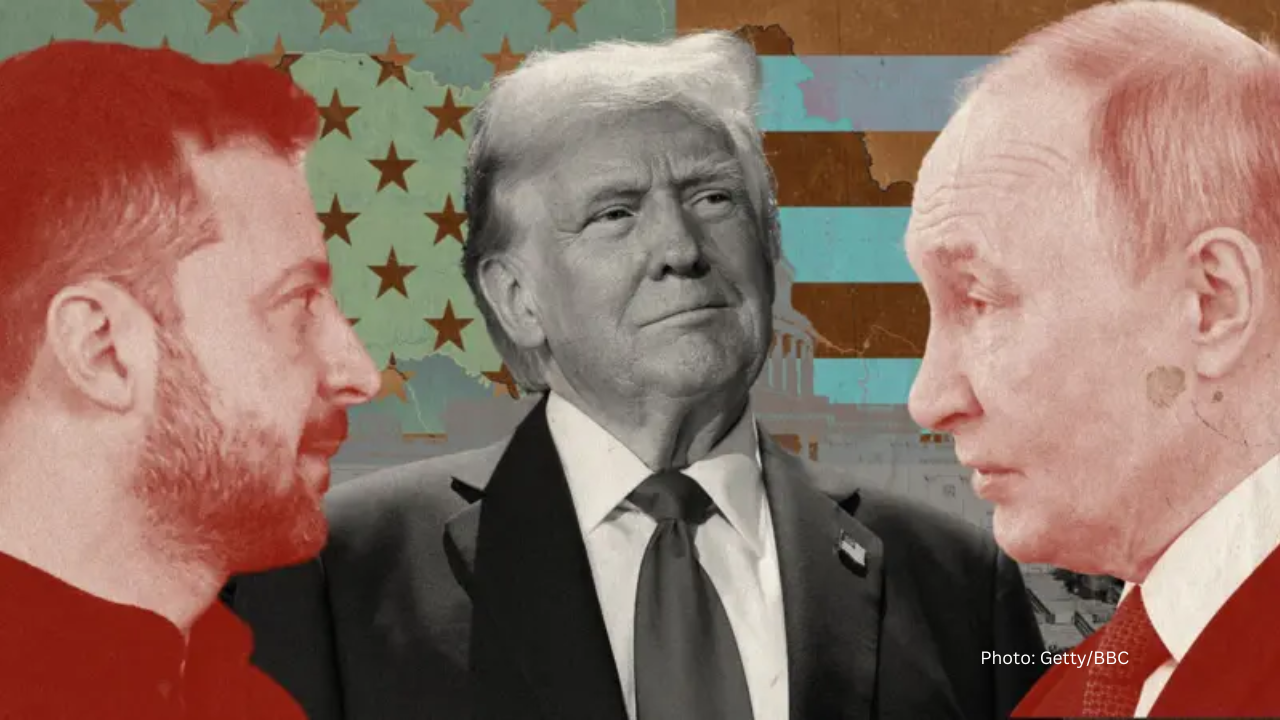Caught in the Diplomatic Struggle: Ukraine's Battle Amid U.S.-Russia Negotiations
Marzana Mahnaz | 25 February 2025
The war between Ukraine and Russia began in February 2022 when Russia launched a full-scale invasion of Ukraine. This conflict has resulted in significant geopolitical tensions, a humanitarian crisis, and numerous casualties. The war has seen various phases, including intense battles, territorial gains and losses, and ongoing diplomatic efforts to reach a resolution. The shift of administration in the U.S has brought a shift in diplomatic efforts for the long going protracted conflict between the two countries.
The stance of U.S. administrations on the Ukraine-Russia conflict has evolved over time. Under President Obama, the U.S. condemned Russia's actions and imposed sanctions in response to the annexation of Crimea. The Trump administration took a different approach, with President Trump expressing a desire to improve relations with Russia and at times questioning the extent of U.S. involvement in Ukraine. In the past, the Biden administration reaffirmed support for Ukraine, providing military aid and diplomatic backing. However, recent developments under President Trump have seen a shift towards negotiating directly with Russia, often excluding Ukraine from key discussions and focusing on economic transactions rather than traditional security commitments. According to the BBC, President Donald Trump and Vladimir Putin recently spoke on a phone call and agreed to begin negotiations to end the war in Ukraine.
Although President Trump is now determined to resolve the war, he reached out to the counterpart who initiated it first, rather than the one who has been fighting against it. The U.S. President also welcomed Russia's President Vladimir Putin back to international diplomacy with the 90-minute phone call, to be followed by a face-to-face meeting, possibly in Saudi Arabia.
After reaching President Putin, Ukrainian counterpart President Volodymyr Zelensky also received a phone call from the white house. However, Trump calling him after speaking to Putin, seemed to regard him, at best, as a junior adjunct to any peace talks. The phone calls only interpret that Trump and Putin are attempting to settle Ukraine's future without anyone else in the negotiation. Along with President Zelensky, The European Union is worried too about the resolution being only one sided. BBC reported that the EU foreign policy chief KajaKallas posted that Europe must have a central role in any negotiation. "Our priority now must be strengthening Ukraine and providing robust security guarantees," Kallas said.
Collectively, European allies have provided Ukraine with more financial support than the United States. Zelensky is acutely aware that, despite the steadfastness of his European allies, the US remains the world's most powerful military force. In a recent interview with the Guardian, he emphasized that "security guarantees without America are not real security guarantees."
On the other hand, the change of administration bore flexibility for the Russian President amid the insecurity of Ukraine and the EU allies. Putin is getting a much easier ride than he had from Biden. According to Al Jazeera, Kyiv demands a full withdrawal of Russian troops from its territory and immediate NATO membership. Moscow says there is no question of returning any land it occupies, and wants Ukraine written out of NATO. Regarding the issue of land dispute, Trump seemed to suggest that the huge numbers of dead and wounded in the Russian military gave some kind of legitimacy to Putin's demand to keep the land captured and annexed by Russia. To add fuel to the fire, a week after the phone call, President Donald Trump suggested Ukraine was responsible for Russia's invasion in 2022, arguing that Kyiv could have made a deal to avoid the conflict. Trump made these remarks while criticizing Ukrainian President Volodymyr Zelenskyy for expressing concern about not being included in peace talks between the U.S. and Russia in Saudi Arabia. Trump claimed he could have negotiated a deal that would have prevented the war and spared lives and infrastructure.
The change in the U.S. administration has highlighted the rise of a populist leader who appears to lack a full grasp of the gravity of the long-standing Ukraine-Russia war. President Trump's approach, which seems to support the totalitarian leader Vladimir Putin, has left Ukraine in a precarious position. The diplomatic efforts between these two authoritative superpowers have sidelined Ukraine, creating a sense of insecurity for the nation.
This approach from President Trump has raised concerns among European allies, who fear that the resolution may be one-sided and not in Ukraine's best interest. The EU foreign policy chief emphasized the need for Europe to have a central role in any negotiation, stating that "our priority now must be strengthening Ukraine and providing robust security guarantees".
The current diplomatic landscape has left Ukraine caught between the diplomacy of two authoritative superpowers, with its future uncertain. The EU's support, while crucial, may not be enough to secure a lasting resolution to the conflict without the involvement of the United States.
Marzana Mahnaz is a Research Assistant at Centre for Governance Studies
Views in this article are author’s own and do not necessarily reflect CGS policy.
